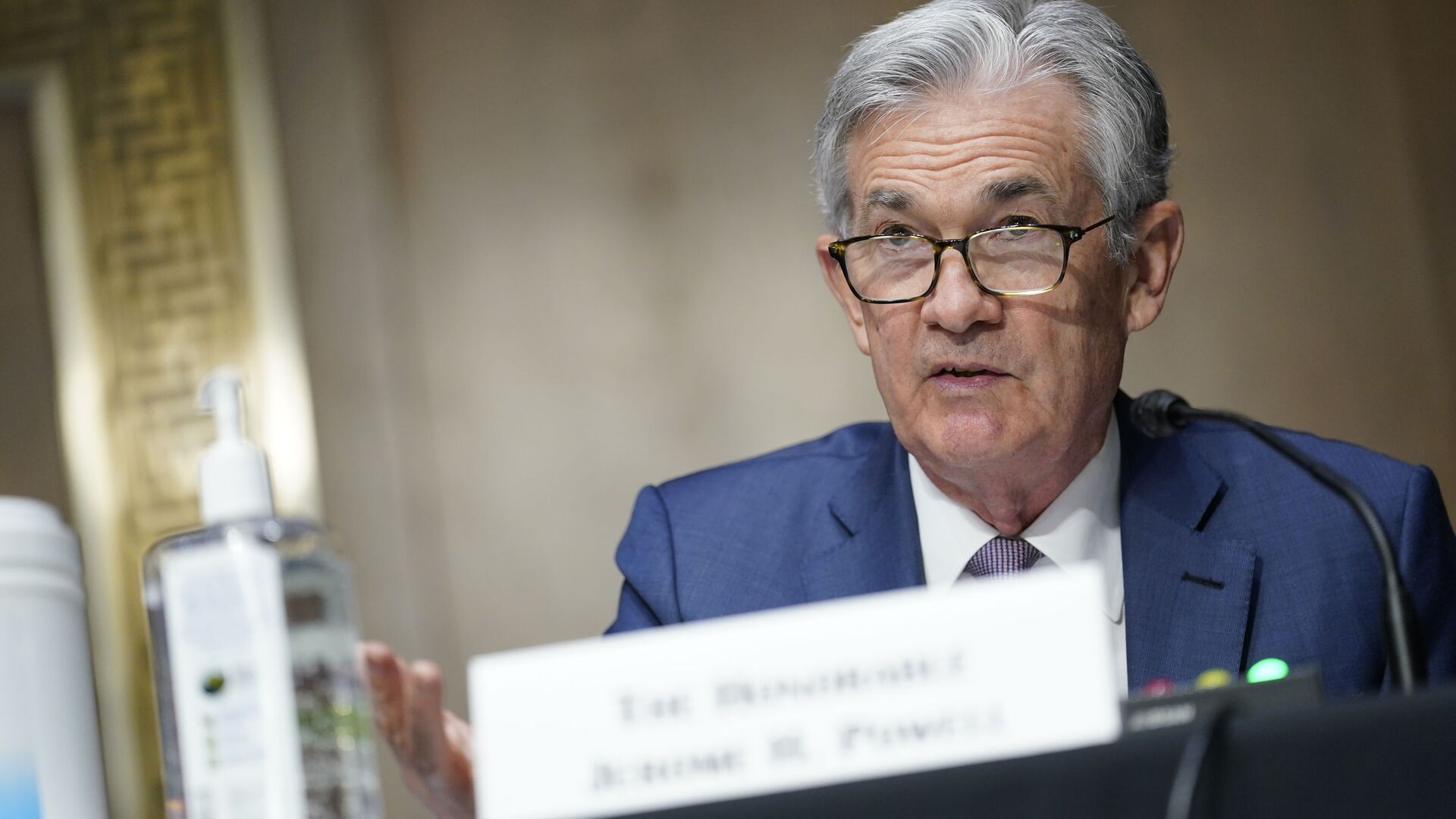Stocks Tumble After Fed Chair Says Fighting Inflation Will ‘Bring Some Pain’ to Homes, Businesses

© AP Photo / Susan Walsh
Subscribe
Speaking on Friday at the Federal Reserve's annual Jackson Hole Economic Symposium in Wyoming, Federal Reserve Chairman Jerome Powell warned that the central bank’s efforts to stop and reverse inflation would have noticeable effects on the economy.
“Restoring price stability will take some time and requires using our tools forcefully to bring demand and supply into better balance,” Powell said. “While higher interest rates, slower growth and softer labor market conditions will bring down inflation, they will also bring some pain to households and businesses.”
"Our responsibility to deliver price stability is unconditional," he said, calling it "the bedrock of our economy."
Stocks fell on Friday following Powell’s words, as investors anticipated further interest rate increases, which limit the amount of money banks can lend to each other. The Dow Jones Industrial Average was down more than 700 points by mid-afternoon, with other indices suffering similar losses. However, the yield on 10-year US Treasury bonds increased at the news.
“I think people are just reassessing,” Mike Schumacher, the head of macro strategy at Wells Fargo Securities, told CNBC. “It was fine. It was hawkish enough, but it wasn’t over the top. There was expectation for a very hawkish speech so it’s hard to measure up to that.”
The Bureau of Labor Statistics’ (BLS), whose consumer price index tracks the price of goods compared to their cost a year prior, has reported the largest such gap seen in 40 years. Amid the COVID-19 pandemic, the Fed has hesitated to respond to rising inflation, since the interest rate hikes it uses to do so often have the added effect of hurting job growth.
That changed in March, when the Fed began a series of hefty monthly interest rate increases aimed at stopping the price increases.
According to findings by the Economic Policy Institute (EPI), corporate profits accounted for 54% of inflation over the last two years, meaning other causes, such as employee wage increases or the interruptions, delays, and shortages caused by the COVID-19 pandemic, together bear only a minority of the responsibility for the record price hikes.
Jay Hatfield, founder and CEO of Infrastructure Capital Management, told CNN Business that Powell’s comments “clearly implied” the Fed’s next rate increase would be even higher than before, possibly by 75 base points.
"Powell and the Fed felt they needed to be hawkish," Hatfield said. "Even if they are secretly encouraged about inflation, they're definitely not going to say it."
Powell and US President Joe Biden have for months resisted equating curbing inflation with damaging the US economy, including Biden’s administration refusing to say the US economy is in a recession, despite a July report by the US Department of Commerce showing that it had contracted for two consecutive quarters - the textbook definition of a recession.
On the other hand, Powell has masked the effects of increasing interest rates by referring to the desired result as a “soft or ‘soft-ish’ landing” instead of plainly stating that it will cause unemployment to rise.
Corporations, however, haven’t hidden their desire for unemployment to increase from its present historic low of 3.5%. They are struggling to keep profits up, causing hiring freezes, added pressure to their workforce to improve productivity, and even layoffs.
A June note by Bank of America executives that was leaked to the press earlier this month said their investment arm “hope[s] the ratio of job openings to unemployed is down to the more normal highs of the last business cycle” in the next 12 months.

